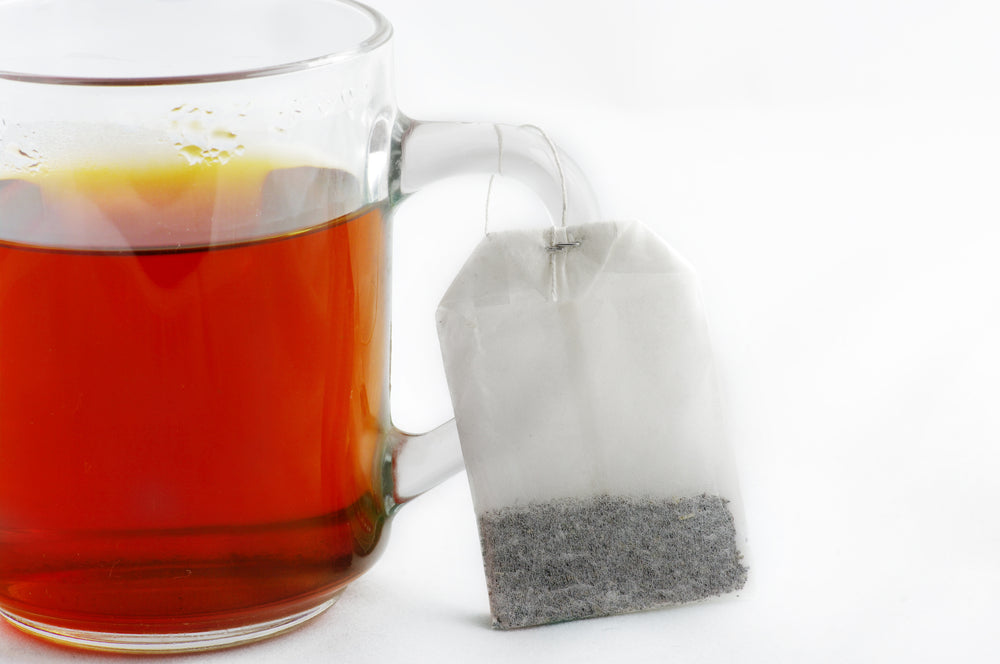Caffeine is a natural chemical, an alkaloid that is naturally present in certain species of plants, especially in coffee, tea, and cacao – all three are popular and consumed throughout the world. While caffeine is not harmful when consumed in a controlled way, consuming it in large quantities can affect blood pressure, heart health and can contribute to other health issues such as tremors, anxiety, palpitation, and insomnia.
Different types of teas tend to have higher levels of caffeine when compared to coffee. Green, white, oolong, and black teas – all have different levels of caffeine depending on where they were grown, how they were picked, and the way they were processed. Black teas, especially, are known to have high levels of caffeine. This is the reason why many people have moved to consuming decaffeinated tea.
Tetley, a famous English beverage manufacturing company, has been producing decaffeinated tea bags and has a fairly large percentage of people consuming them.
What do You Mean by Decaffeinated?
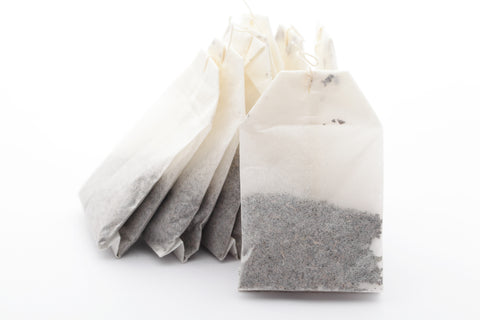
Decaffeinated simply means removing caffeine from the product – here, tea. There are two ways in which tea leaves can be decaffeinated.
- By combining tea with CO2 in a special high-pressure environment. This causes the caffeine from the tea to transfer to CO2.
- By using a solvent known as Ethyl Acetate which strips the tea leaves of the caffeine present in it.
- Methylene Chloride is also a chemical that is used to extract caffeine from tea. It is said that this process maintains the natural flavour profile of the tea and tastes better than decaffeinated tea made using ethyl acetate. However, most companies refrain from using this method as residual amounts of methylene chloride are left over on the tea.
- Tea leaves are soaked in water first. Next, the leaves are passed through a carbon filter for removing the caffeine. The water is then added back to the tea leaves so they get their flavour back. This process is also not preferred as it gives a watery taste and is not potent.
Different tea companies use either of the methods to remove caffeine from the tea leaves. However, Tetley is known to use Ethel Acetate to remove caffeine.
About Tetley
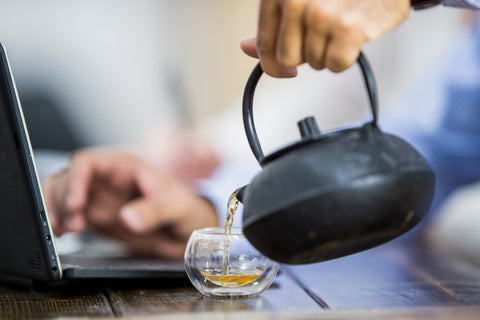
Tetley was founded in 1837 in Yorkshire and is one of the largest tea manufacturing companies in the UK and Canada. It ranks second in the United States. It was founded by two brothers, Joseph and Edward Tetley, who originally sold salt in Huddersfield, Yorkshire. Soon, they began to sell tea, and by 1856, they were so successful that they relocated to London in the same year and formed Joseph Tetley & Co. In the coming years, the ownership changed hands a few more times and was bought by the Tatas. Finally, it became a wholly owned subsidiary of Tata Consumer Products in 2000. The Tata Group bought Tetley for £271 million.
Tetley Range of Decaffeinated and Caffeine-Free Tea Bags
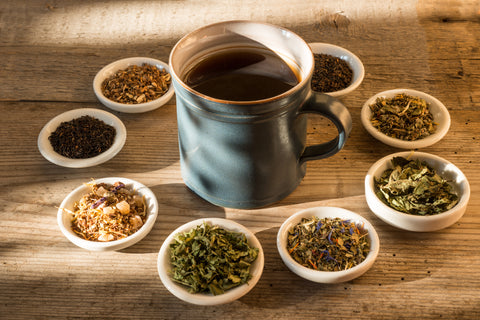
Tetley sources their tea from some of the best tea-producing countries across the world, like Malawi, Kenya, Uganda, Rwanda, Burundi, Tanzania, China, India, Papua New Guinea, Vietnam, Argentina, and Indonesia. All teas imported undergo extensive taste tests and quality checks before they are blended, decaffeinated, etc., and packaged. Some of their decaffeinated and caffeine-free range of teas include:
British Blend
British Blend is decaffeinated black tea, which is available in beautiful black packaging and comprises 40 tea bags and for sale in single, 3-pack, and 6-pack.
Green Tea
Green Tea, like its name, is decaffeinated green tea, which is light and refreshing and doesn't have a bitter taste. It comes in green packaging comprising 72 tea bags and is for sale in single, 3-pack, and 6-pack.
Iced Tea Blend
This is a specially crafted black tea blend for iced tea. It comes in light blue packaging with an image of iced tea and comprises 24 tea bags. It is for sale in single, 6-pack, and 12-pack.
Peppermint
Peppermint is naturally caffeine-free, refreshing, aromatic, and tasty herbal tea. A single pack of this tea comprises 25 tea bags, and it is also available in a 6-pack.
Orange Peach Herbal
Another naturally caffeine-free herbal tea that is made from ripe peaches and fresh oranges. It has a refreshing and rejuvenating taste. A single pack of this tea comprises 25 tea bags, and it is also available in a 6-pack.
Chamomile Herbal
Chamomile is a naturally caffeine-free tea made from chamomile, known for helping with inflammation and muscle spasms. A single pack of this tea comprises 25 tea bags and is also available in a 6-pack.
Benefits of Drinking Decaffeinated Tea
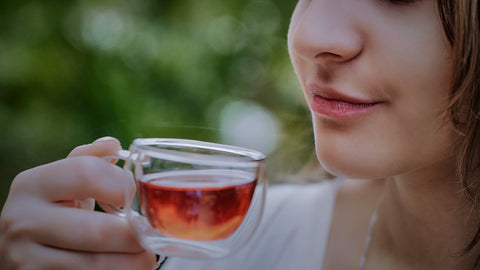
Some benefits of drinking decaffeinated tea are as follows:
Reduced Caffeine Intake
One of the most obvious advantages of consuming decaffeinated tea is reduced intake or elimination of caffeine completely. Different people react differently to caffeine, and excessive caffeine use might cause jitteriness, sleeplessness, or elevated heart rate in certain individuals. People can still enjoy the flavour of tea without these side effects by drinking decaffeinated tea.
Better Sleep
Decaffeinated tea is a fantastic choice for people who like tea in the evening but don't want to experience the energizing effects of caffeine. It makes it possible for people to have a warm drink before going to bed without disturbing their sleep.
Hydration
Even after decaffeination, tea still increases daily fluid intake and encourages hydration. Decaffeinated tea might be a tasty and calorie-efficient choice for people who want to boost their fluid consumption. Staying hydrated is vital for general health.
Antioxidants
Even after decaffeination, tea comprises important antioxidants like catechins, which are known to offer many health benefits. They help in neutralizing free radicals in the body.
Digestive Benefits
Tea is known to offer some digestive benefits. Naturally, caffeine-free herbs are known to offer many digestive benefits.
Variety of Flavours
People can still enjoy the variety of tastes that tea offers without the stimulating effects of caffeine.


 Easter 2026
Easter 2026
 Frozen Food
Frozen Food
 Baking
Baking
 Beans, Peas, Soups & Tins
Beans, Peas, Soups & Tins
 Biscuits, Crackers & Cookies
Biscuits, Crackers & Cookies
 Candy / Sweets
Candy / Sweets
 Crisps & Snacks
Crisps & Snacks
 Chemist / Pharmacy
Chemist / Pharmacy
 Desserts
Desserts
 Gravy, Stock & Paste
Gravy, Stock & Paste
 Haggis
Haggis
 Indian Sauces, Paste and Pickle
Indian Sauces, Paste and Pickle
 Jams & Preserves
Jams & Preserves
 Poppy Appeal
Poppy Appeal
 Pot Noodles & Super Noodles
Pot Noodles & Super Noodles
 Scone Mix
Scone Mix
 Gluten-Free / Free From
Gluten-Free / Free From
 Tea Accessories
Tea Accessories
 Teapot & Tea sets
Teapot & Tea sets
 Tea For One
Tea For One
 Sugar & Creamer
Sugar & Creamer
 Tableware
Tableware
 Serveware
Serveware
 Plates & Trays
Plates & Trays
 Bowls
Bowls
 Cups & Saucers
Cups & Saucers
 Mugs
Mugs
 Silverware
Silverware
 Dinnerware - Accessories
Dinnerware - Accessories
 Dinnerware - For Pets
Dinnerware - For Pets
 Victoria Eggs - Hand-Drawn UK Homeware
Victoria Eggs - Hand-Drawn UK Homeware
 Jewelry & Accessories
Jewelry & Accessories
 Sale
Sale
 Christmas Gifts
Christmas Gifts
